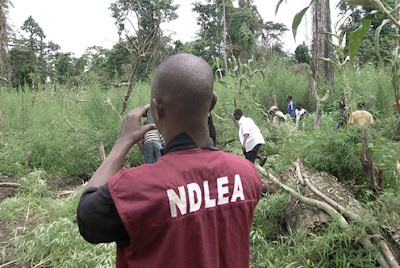Preventing drug trafficking in Nigeria through enhanced cross-border cooperation
By Charles Ogba
Drug trafficking has emerged as a significant global challenge, impacting millions of individuals through addiction and related crimes. According to the United Nations Office on Drugs and Crime (UNODC), drug trafficking involves the illicit trade of substances prohibited by law, generating substantial profits for criminal organizations and contributing to societal harm, economic instability, and public health risks worldwide.
The UNODC World Drug Report 2024 quotes Executive Director of the world body, Ghada Waly that drug production, trafficking, and use continue to exacerbate instability and inequality while causing untold harm to people’s health, safety, and well-being. Calling for evidence-based treatment and support for all people affected by drug abuse, Waly harped on the need for governments to target the illicit drug market and invest more in prevention measures.
The UNODC World Drug Report 2024 highlights a concerning trend in the global number of drug users surged to 292 million in 2022, marking a significant increase over the past decade. The report shows that about 35 million people worldwide struggle with drug use disorders, while drug trafficking generates billions of dollars for criminal organizations in the world.
Furthermore, the report shows that cannabis as the most prevalent drug worldwide, recorded approximately 228 million users. It also noted significant numbers for opioids at 60 million users, amphetamines with 30 million users, cocaine with 23 million users, and ecstasy with 20 million users. These figures underscore the global scale of substance abuse and its profound impact on societies, reflecting a complex challenge that demands coordinated international efforts for effective prevention, treatment, and enforcement strategies.
In Nigeria, Chairman of the National Drug Law and Enforcement Agency, NDLEA, Retired Brigadier-General Buba Marwa said at the commemoration of the 2024 International Day against Drug Abuse and Illicit Trafficking, that the agency seized 761,000 tons of illicit drugs and substances between January 2021 and March 2024.
Also in a report spanning three years, the agency arrested 52,901 individuals involved in drug-related crimes, including 48 high-profile drug barons.
Nigeria is bordered to the north by Niger, to the northeast by Chad, to the east by Cameroon, and the west by Benin. Its southern coastlines are along the Gulf of Guinea in the Atlantic Ocean. These geographical features position Nigeria strategically to combat drug trafficking, as they serve as entry points that require vigilant monitoring and enforcement to prevent illicit substances from entering or exiting the country.
Traffickers exploit weaknesses in border security and jurisdictional differences to evade law enforcement. Close collaboration enables intelligence sharing, joint operations, and coordinated border patrols, significantly enhancing enforcement effectiveness. Harmonizing legal frameworks and extradition treaties facilitate seamless prosecution of traffickers across borders, reducing safe havens and ensuring greater accountability.
Nigeria should continue to apply some of the preventive initiatives by the UNODC like alternatives to illicit drug cultivation, monitoring illegal drug crops, and implementing projects against money laundering.
Nigeria should also improve the intelligence sharing and law enforcement agencies’ ability to track and dismantle trafficking networks. There is a need for a comprehensive trafficking operation, targeted at interventions as well as cooperation to help prevent the diversion of drug precursors and chemicals used in the production of illicit drugs.
Nigeria’s successes over the years in the fight against illicit drug consumption and trafficking should not be taken for granted in sustaining the fight towards preventing drug trafficking in Nigeria and Africa.
By enhancing cooperation among countries, Nigeria can mitigate the impact of drug trafficking, protect public health, and uphold the rule of law on drug administration and control globally.

